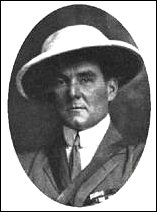An old committee member of mine once told me, "If you want to read good anthropological topics, just open the newspaper." Today the LA Times is running a Column One article on skin whitening products marketed to the local Asian American community in So Cal.
Whitening products have been a mainstay in Asia for decades, but cosmetics industry officials said they have emerged as a hot seller in the United States only in the last four years. Whitening products now rack up $10 million in sales a year, according to the market research firm Euromonitor.
But their popularity has sparked a debate in the Asian American community about the politics of whitening. Qui and others say the quest for white skin is an Asian tradition. But others — younger, American-born Asians — question whether the obsession with an ivory complexion has more to do with blending into white American culture, or even a subtle prejudice against those with darker skin.
The market research firm says cosmetics companies have taken note of the sensitivity, saying their Asian skin products in America are intended not for "whitening" but for "brightening."
"It's not a politically correct term because it seems to imply that looking Caucasian via a white complexion is the desired beauty goal," said Virginia Lee, a Euromonitor analyst.
But it's not just a generational difference in attitude. Skin color and racial classifications have been at the core of anthropological research for well over a century, teasing out cultural constructions of behavior and attitudes that rely on phenotypic markers to "explain" their underlying causes. Take the following exchange between a husban and wife as one such example:
It's OK for American women to be darker, said her husband Lei Sun, a 36-year-old sushi chef. "It's part of the sports thing."
But Lei Sun prefers lighter-skinned Asian women, saying that they embody the traditional ideal known as si si wen wen. He looked to his wife to explain the concept.
"That means when a lady stands there with white skin and is very polite, and when she laughs, she doesn't make a big noise," Qiu said.
Subscribe to:
Post Comments (Atom)

2 comments:
I am surprised to hear that whitening products hav a market in the US. however, I am not entirely sure if the ultimate aim is to look Caucasian. I am from India where skin whitening is big business - the largest selling brand here is called 'fair and lovely' - cannot get any more descriptive of attitudes!
ah. GOOD post. we have a stinker of a problem in india because most of mass medias stereotypes of the "perfect" body, skin colour, eye colour.. you name it - is based on aryan standards. this skin colour business especially, has come to be so loaded - what colour skin a person is (mentally and physically) speaks volumes about their politics!
you run a really interesting blog - do keep writing :)
Post a Comment